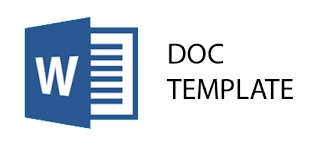Triple-Entry Accounting Based on Blockchain Technology: How Can It Be Implemented in Indonesia?
DOI:
https://doi.org/10.37253/gfa.v7i1.7467Keywords:
Accounting, Accounting Technology, Blockchain, Indonesia, Triple-Entry AccountingAbstract
Purpose - This study focuses on finding solutions for Indonesian accountants to apply triple-entry accounting (TEA) based on blockchain technology (BT). The aim of this study is to raise the general level of understanding and awareness about Blockchain Technology (BT)-based Triple-Entry Accounting (TEA). Furthermore, this article explores the possibility of implementing BT-based TEA in Indonesia, which still uses the double-entry accounting (DEA) system in daily practice.
Research Method - This study used a qualitative methodology as a literature review and case study to analyze various academics' theories, attitudes, and opinions on TEA.
Findings - The TEA method has undergone extensive research worldwide and offers benefits far superior to the double-entry accounting system (DEA), which the accounting industry has employed for over five centuries. However, the lack of a legal framework in Indonesia and the possible high cost of recognition means that the implementation of a BT-based TEA in Indonesia has yet to start.
Implication - This research was conducted to help accountants, regulators, and business researchers know the role of BT in the potential implementation of TEA and the need to implement it to develop a new accounting system that provides better usability, security, and predictive functions than DEA. We also want to motivate more accounting researchers, accounting practitioners, and accounting regulators in Indonesia to get to know and further apply BT in accounting. We hope this article can generate insights into the knowledge and insights on implementing the BT-based TEA system.
Downloads
References
Adam, I. O., & Dzang A, M. (2020). Bridging the global digital divide through digital inclusion: the role of ICT access and ICT use. Transforming Government: People, Process and Policy, 15(4), 580–596. https://doi.org/10.1108/TG-06-2020-0114
Ahluwalia, S., Mahto, R. v, & Guerrero, M. (2020). Blockchain technology and startup financing: A transaction cost economics perspective. Technological Forecasting and Social Change, 151. https://doi.org/10.1016/j.techfore.2019.119854
Ahmad, A., Wahyuni, I. S., Istiqomah, L., Wulan, E., & Tiyas, W. (2022). Triple Entry Bookkeeping di Era Teknologi Blockchain: Suatu Kajian Literatur. Jurnal Pendidikan Akuntansi (JPAK), 10(3), 2722–7502.
Alsaqa, Z. H. (2019). The impact of blockchain on accounting information systems. Journal of Information Technology Management, 11(3), 62–80. https://doi.org/10.22059/jitm.2019.74301
Bellucci, M. (2022). Blockchain in accounting practice and research: systematic literature review. Meditari Accountancy Research, 30(7), 121–146. https://doi.org/10.1108/MEDAR-10-2021-1477
Blommaert, T. M. M. (1995). Additional Disclosure: Triple-Entry And Momentum Accounting The Administration Of Profit Drivers And Income Momentum Data To Improve Management Accounting System Information. European Accounting Review, 4(3), 580–581. https://doi.org/10.1080/09638189500000036
Bonyuet, D. (2020). Overview and impact of blockchain on auditing. International Journal of Digital Accounting Research, 20, 31–43. https://doi.org/10.4192/1577-8517-v20_2
Cai, C. W. (2019). Triple-entry accounting with blockchain: How far have we come? Accounting and Finance, 61(1), 71–93. https://doi.org/10.1111/acfi.12556
Carlin, T. (2019). Blockchain and the Journey Beyond Double Entry. Australian Accounting Review, 29(2), 305–311. https://doi.org/10.1111/auar.12273
Chen, W. B. (2021). Implementing triple entry accounting system with π account on block-chain protocol. Journal of Internet Technology, 22(2), 491–497. https://doi.org/10.3966/160792642021032202023
Chowdhury, E. K. (2021). Financial Accounting in the Era of Blockchain - A Paradigm Shift from Double Entry to Triple Entry System. SSRN Electronic Journal. https://doi.org/10.2139/ssrn.3827591
Dai, J., & Vasarhelyi, M. A. (2017). Toward blockchain-based accounting and assurance. Journal of Information Systems, 31(3), 5–21. https://doi.org/10.2308/isys-51804
Faccia, A., & Petratos, P. (2021). Blockchain, enterprise resource planning (ERP) and accounting information systems (AIS): Research on e-procurement and system integration. Applied Sciences (Switzerland), 11(15). https://doi.org/10.3390/app11156792
Fikri, N., Rida, M., Abghour, N., Moussaid, K., Omri, A. el, & Myara, M. (2022). A Blockchain Architecture for Trusted Sub-Ledger Operations and Financial Audit Using Decentralized Microservices. IEEE Access, 10, 90873–90886. https://doi.org/10.1109/ACCESS.2022.3201885
Grigg, I. (2005). Triple Entry Accounting. Tribhuvan University Journal, 1–15. https://doi.org/10.13140/RG.2.2.12032.43524
Han, H., Shiwakoti, R. K., Jarvis, R., Mordi, C., & Botchie, D. (2023). Accounting and auditing with blockchain technology and artificial Intelligence: A literature review. International Journal of Accounting Information Systems, 48. https://doi.org/10.1016/j.accinf.2022.100598
Hsieh, P. (2018). The intellectual development of Yuji Ijiri. Accounting History, 23(4), 541–554. https://doi.org/10.1177/1032373217744289
Ijiri, Y. (1982). Triple-entry book-keeping and income momentum. In American Accounting Association.
Ijiri, Y. (1986). A Framework for Triple-Entry Bookkeeping. The Accounting Review, LXI(4).
Karajovic, M., Kim, H. M., & Laskowski, M. (2019). Thinking Outside the Block: Projected Phases of Blockchain Integration in the Accounting Industry. Australian Accounting Review, 29(2), 319–330. https://doi.org/10.1111/auar.12280
Kitsantas, T. (2022). Blockchain Technology as an Ecosystem: Trends and Perspectives in Accounting and Management. Journal of Theoretical and Applied Electronic Commerce Research, 17(3), 1143–1161. https://doi.org/10.3390/jtaer17030058
Kuruppu, S. C. (2022). How can NGO accountability practices be improved with technologies such as blockchain and triple-entry accounting? Accounting, Auditing and Accountability Journal, 35(7), 1714–1742. https://doi.org/10.1108/AAAJ-10-2020-4972
Made Sudarma. (2010). Paradigma Penelitian Akuntansi dan Keuangan. Jurnal Akuntansi Multiparadigma, Vol. 1 No. 1 April 2010 , 1(1), 97–108.
Mahaini, M. F., Danessa, F. R. A., & Wulandari, A. K. (2022). Treping System (New Trebit for Bookkeeping System): Implementasi Triple Entry Accounting dalam Sistem Entitas Pendidikan. Journal of Applied Managerial Accounting, 6(1), 47–58. https://doi.org/10.30871/jama.v6i1.3928
Maiti, M., Kotliarov, I., & Lipatnikov, V. (2021). A future triple entry accounting framework using blockchain technology. Blockchain: Research and Applications, 2(4). https://doi.org/10.1016/j.bcra.2021.100037
Nakamoto, S. (2008). Bitcoin: A Peer-to-Peer Electronic Cash System. Https://Bitcoin.Org/Bitcoin.Pdf, 2008. https://doi.org/10.2139/ssrn.3977007
Pedreño, E. P. (2021). Blockchain and its application to accounting. Intangible Capital, 17(1), 1–16. https://doi.org/10.3926/IC.1522
Saidu, A. (2014). Accounting and Civilisation. SSRN Electronic Journal. https://doi.org/10.2139/ssrn.2403992
Sangster, A. (2016). The genesis of double entry bookkeeping. Accounting Review, 91(1), 299–315. https://doi.org/10.2308/accr-51115
Sangster, A., & Santini, F. (2022). Lost in translation: Pacioli’s de computis et scripturis. Accounting History, 27(3), 311–342. https://doi.org/10.1177/10323732221098443
Schmitz, J., & Leoni, G. (2019). Accounting and Auditing at the Time of Blockchain Technology: A Research Agenda. Australian Accounting Review, 29(2), 331–342. https://doi.org/10.1111/auar.12286
Staszkiewicz, P. (2021). Reporting and disclosure of investments in sustainable development. Sustainability (Switzerland), 13(2), 1–15. https://doi.org/10.3390/su13020908
Verhoef, P. C., Broekhuizen, T., Bart, Y., Bhattacharya, A., Qi Dong, J., Fabian, N., & Haenlein, M. (2021). Digital transformation: A multidisciplinary reflection and research agenda. Journal of Business Research, 122(November 2019), 889–901. https://doi.org/10.1016/j.jbusres.2019.09.022












